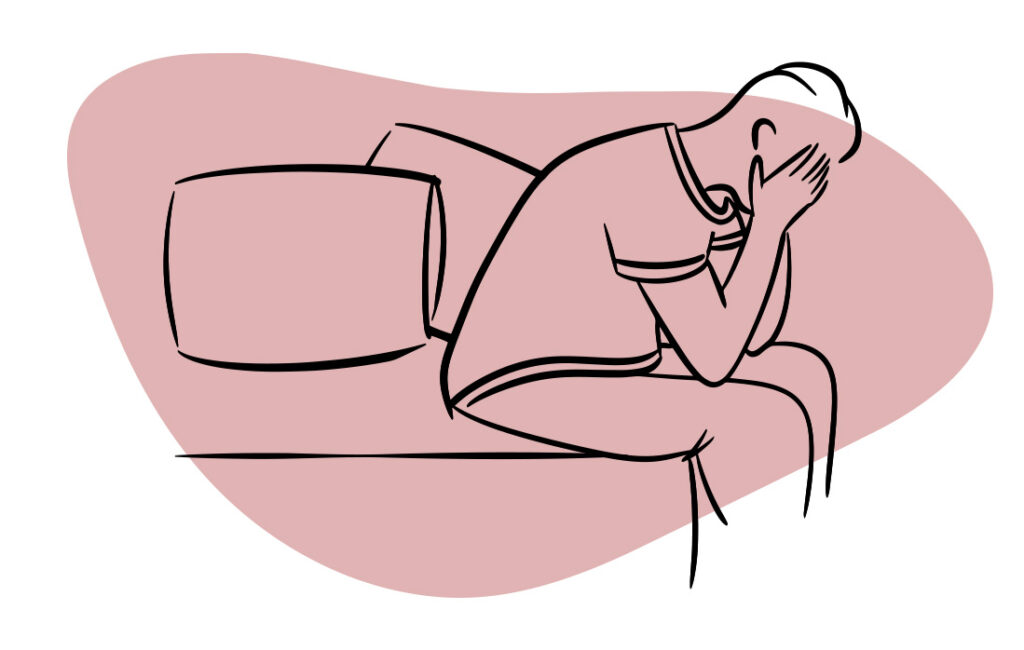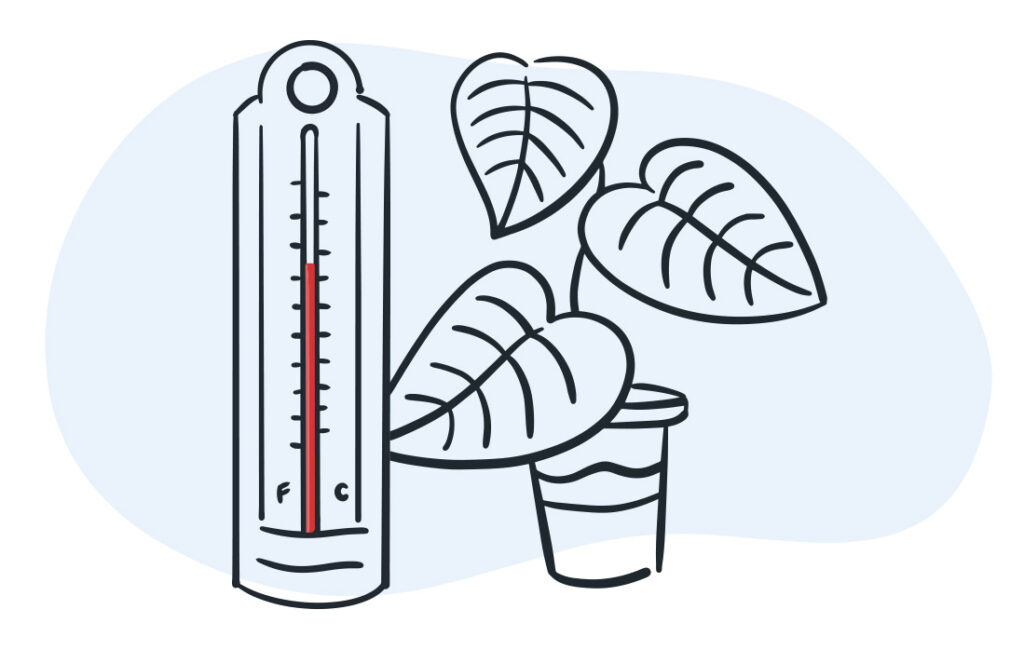Best Temperature For Sleep
Disclosure: By clicking on the product links in this article, Mattress Nerd may receive a commission fee at no cost to you, the reader. Read full disclosure statement.
The best temperature for sleep is typically between 60 and 67 degrees F. This temperature helps facilitate rapid eye movement (REM) sleep stability. But the ideal temperature for you may vary.
Many factors impact your optimal sleeping temperature. Here, we’ll review each of those while providing insight into how to improve the quality of your sleep.

How Temperature Impacts Sleep
A good rule of thumb is that heat is the enemy of sleep. When you’re too hot, you will feel uncomfortable and more likely to awaken in the night.
Your body temperature when sleeping changes because of how your nervous system reacts to the stages of sleep. As metabolism slows while in those stages of sleep, your body temperature also drops as you approach rapid eye movement (REM) sleep.
Body temperature changes are a part of your natural circadian rhythm. So, any disruptions in temperature may prevent you from moving through the stages of sleep and getting the REM sleep you need.
Body Temperature Fluctuations Throughout The Day
Typically, you experience lower body temperatures in the morning but higher ones in the evening. But have you noticed that sometimes you’re hot when everyone else feels just right? That’s because research shows us that our internal body temperature can vary from person to person.

Best Room Temperature For Sleeping
According to research, the best room temperature for sleeping is around 60 to 65 degrees F (15 to 18 degrees C). Of course, different experts suggest variations a few degrees above or below.
The goal is to keep it cooler at night. There is a direct connection between body cooling and sleep. The body may cool to conserve energy and allow us to enter REM sleep.
But many things can affect how you respond to the chilled environment while sleeping. For example, the following factors may affect your body temperature:
- Age. Older adults tend to lose body heat faster than others, while infants need a warmer room.
- Circadian rhythm. Our circadian clock regulates the rise and fall of our core body temperature during daytime and nighttime.
- Metabolism. It helps regulate body temperature.
- Ovulation. Body temperature drops right before the ovaries release an egg and rises 24 hours after.
- Season. Research shows that living in a hotter climate, or during summer months, can negatively impact sleep quality.
- Underlying health conditions. Physical and mental health conditions affect skin temperature and how we adapt to our environment.
Here are the optimal room temperatures based on age:
| Age Group | Temperature, (°Farenheit) | Temperature, (°Celcius) |
| Infants/Children | 65-70° | 16-21° |
| Adults | 60-67° | 15-19° |
| Seniors | 66-70° | 19-21° |
Best Temperature For Baby’s Sleep
Infants can’t let us know when they’re too hot or cold. So, it’s best to aim for a neutral temperature that’s neither. A room temperature between about 65 to 70 degrees Fahrenheit is ideal.
Babies are still learning to regulate their temperature and developing their circadian rhythm. But it’s best to leave the heaters and AC units out of their room. Fans are suitable for circulating air, though.
Best Sleeping Temperature For Adults
As mentioned, the best sleeping temperature for adults is between 60 to 65 degrees. It facilitates the various stages of sleep.
Any disruption in moving through the sleep stages, such as becoming too hot, can lead to poor sleep quality.
Best Sleeping Temperature For Seniors
Older people have a higher risk of hypothermia, and lower room temperatures put them at risk. So, it’s best to dress warmly for bedtime and keep the room temperature at 66-70 degrees Fahrenheit.
If you’re cold at night, here are some tips to stay warm:
- Dress warm while at home on cold days by covering with a blanket and wearing socks or slippers.
- Ensure your home isn’t losing heat through the windows by keeping your blinds and curtains closed.
- Drink alcohol in moderation since it can cause you to lose body heat.
- Ask loved ones to check on you during the cold weather.
- Stay with a loved one if you lose heat at home.
Tips to Keep Your Bedroom Cool Year-Round
Every age might consider these suggestions to keep cool year-round:
- Use blackout curtains.
- Turn the AC down.
- Wear light and breathable clothing.
- Use a cooling pillow.
- Try an ice pack when desperate.
- Practice good sleep hygiene.
Final Thoughts
An ideal sleep temperature is 60 to 65 degrees. But other factors should be considered, like age and current health status. Also, your core body temperature directly impacts your sleep. So, any deviations can disrupt the body from advancing through the sleep stages at night. When in doubt, speak with your doctor today about your individual needs and suggested room temperature.
FAQs
Can you get sick from sleeping in a hot room?
The short answer is no. But sleeping in a hot room might negatively impact the quality of your sleep. Then, a lack of quality sleep may negatively impact your long-term health.
Can you get sick from sleeping in a cold room?
Sleeping in a moderately cold room may improve your health. However, if you’re an older adult, it’s best to ensure you sleep in a warm enough space.
How does sleeping with pets affect temperature at night?
If you are sleeping next to your pet, your body temperature will increase because they’re like a heating pad in the bed. But it shouldn’t negatively impact your body temperature if they sleep over the blankets or at the end of the bed.
Sources
Brinkman J, et al. (2022). Physiology of sleep. https://www.ncbi.nlm.nih.gov/books/NBK482512/
Brown C, et al. (2018). Undercover dogs: Pet dogs in the sleep environment of patients with chronic pain. https://www.mdpi.com/2076-0760/7/9/157/htm
Cold weather safety for older adults. (2018). https://www.nia.nih.gov/health/cold-weather-safety-older-adults
Harding E, et al. (2019). The temperature dependence of sleep. https://www.frontiersin.org/articles/10.3389/fnins.2019.00336/full
Jawabri K, et al. (2022). Physiology, sleep patterns. https://www.ncbi.nlm.nih.gov/books/NBK551680/
Novak S. (2022). What’s the right temperature for baby? https://www.whattoexpect.com/first-year/baby-care/what-is-right-temperature-for-baby/
Obermeyer Z, et al. (2017). Individual differences in normal body temperature: Longitudinal big data analysis of patient records. https://www.ncbi.nlm.nih.gov/pmc/articles/PMC5727437/
Obradovich N, et al. (2017). Nighttime temperature and human sleep loss in a changing climate. https://www.science.org/doi/full/10.1126/sciadv.1601555
Steward K, et al. (2022). Physiology, ovulation and basal body temperature. https://www.ncbi.nlm.nih.gov/books/NBK546686/
Szymusiak R. (2018). Chapter 20 – Body temperature and sleep. https://www.sciencedirect.com/science/article/abs/pii/B9780444639127000205